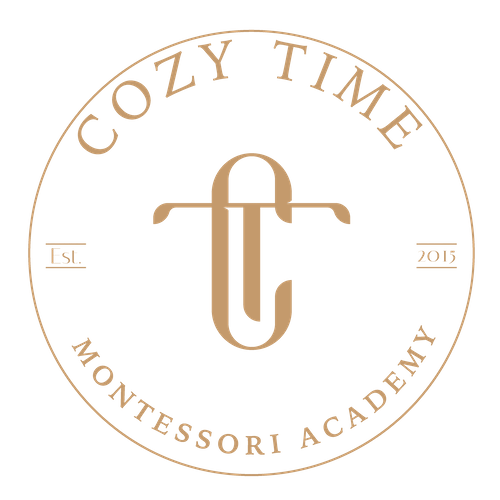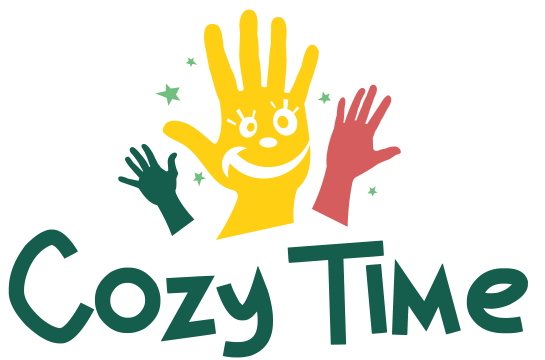Understanding Montessori Daycare
Setting foot into a Montessori daycare in Toronto can be an enlightening experience for parents. The Montessori environment is unique, as it meticulously nurtures a child’s natural inclination to learn. This approach to education was founded by Dr. Maria Montessori, who believed that children learn best when they are in an environment that supports their individual development.
What is Montessori?
Montessori is a method of education that is based on self-directed activities, hands-on learning, and collaborative play. In Montessori classrooms, children make creative choices in their learning, while the environment and the highly trained staff offer age-appropriate activities to guide the process. Montessori recognizes that children are naturally eager for knowledge and capable of initiating their learning in a supportive, thoughtfully prepared environment.
How is it Different?
The Montessori approach stands out because it respects the individuality of each child. The teacher, child, and environment create a learning triangle, with the child at its center. The environment and schedule are designed to cater to each child’s individual pace, avoiding the traditional one-size-fits-all model of conventional daycare settings. This allows children to explore and learn at their own speed, promoting a deep and authentic love for learning. This nurturing framework encourages children to take initiative and make choices that resonate with their interests. By fostering independence and critical thinking, the Montessori approach to early education cultivates confident, self-motivated learners. As a result, children not only acquire knowledge but also develop essential life skills that prepare them for the future.
A Typical Day in Montessori Daycare
Every day in Montessori daycare is structured yet flexible, ensuring that children feel secure and engaged. Let’s walk through a typical day.
Arrival and Morning Routine
As children arrive, they are greeted warmly and encouraged to hang their coats and bags, fostering responsibility and independence right from the start. The day begins with a period of free play, allowing children to settle in and choose their first activity of the day.
Period of Uninterrupted Work
One of the unique aspects of Montessori is the period of uninterrupted work. During this time, children choose activities that interest them, and have the freedom to explore these activities for an extended period. This promotes deep focus and concentration, and allows children to learn at their own pace.
Group Lessons
After the period of uninterrupted work, children gather for group lessons. This could involve learning about new Montessori materials, engaging in a science experiment, or exploring a cultural topic. Group lessons promote cooperation, respect, and social interaction.
Key Montessori Daycare Activities
Montessori daycare activities are designed to foster independence, self-confidence, and a love for learning. Here are some of the key activities your child can look forward to.
Practical Life Activities
These activities involve tasks children see as part of the daily routine in their home, such as cleaning, dressing themselves, preparing food, and gardening. Practical life activities help children develop motor control, coordination, independence, and concentration.
Sensorial Activities
Sensorial activities in Montessori daycare involve using the five senses, kinetic movement, spatial refinement, small and large motor skill coordination, and the understanding of concrete concepts. These activities are designed to help children classify their surroundings and make sense of the world around them.
In conclusion, choosing a Montessori daycare for your child means choosing an environment that nurtures their natural desire to learn, promotes independence, and respects their individual pace and interests. If you’re in Toronto and considering Montessori daycare, don’t hesitate to reach out to Cozytime Child Care, the best licensed Montessori center in town, at (416) 602 3811.
Material Used in Montessori Activities
There I was, with a room full of children at Cozytime, a well-known daycare in Toronto. A small girl reached out for a pink tower block, a staple of Montessori sensorial materials, with a gleam of curiosity in her eyes. This was the beauty of Montessori – engrossing children in a world of tactile learning with hands-on materials.
Practical Life Material
In my 15 years of experience, practical life materials have always been an integral part of the Montessori method. They are everyday items that children use to develop life skills. Items like pouring jugs, buttoning frames, and miniature brooms are not just playthings, they teach children real-life skills, fostering confidence and independence.
Sensorial Material
Sensorial materials, like the pink tower block, are designed to refine a child’s five senses. These materials range from colour tablets for visual discrimination, to sound boxes for auditory senses, and even fabric boxes for tactile senses. This hands-on approach allows children to explore and understand their world in a more profound way.
Math and Language Material
Montessori math and language materials break down complex concepts into comprehensible chunks. Math materials like number rods and bead chains introduce mathematical concepts in a concrete way. Language materials, such as sandpaper letters, enable children to physically trace letters, supporting the development of reading and writing skills.
Benefits of Montessori Daycare Activities
I recall a parent at Cozytime who was amazed at the transformation of her shy, withdrawn child into a confident, independent learner. This is one of the many success stories that testify to the benefits of Montessori daycare activities.
Fosters Independence
Montessori activities are designed to foster independence as they involve tasks that children can do on their own. Through these tasks, children learn to think critically, solve problems, and take care of themselves, which are essential skills for their future.
Cultivates Love for Learning
The Montessori method cultivates a natural love for learning. The child-centered approach ensures that every child can learn at their own pace, using materials that interest them. This sparks curiosity and encourages children to explore, creating lifelong learners.
Develops Social Skills
Montessori activities also focus on social development. Children engage in group activities, learn to share and respect others, and develop empathy. This social interaction is a crucial part of their holistic development. Through collaborative tasks, children not only build friendships but also enhance their communication skills, fostering a sense of community. Montessori activities for young children encourage them to resolve conflicts independently, teaching valuable problem-solving skills. By participating in these experiences, kids gain confidence and learn the importance of working together towards common goals. Through these interactions, children enhance their communication skills and build strong relationships with their peers. In addition to social skills, Montessori learning activities for kids promote independence and self-confidence, allowing children to explore their interests in a supportive environment. This well-rounded approach helps to create a foundation for positive social behaviors that will benefit them throughout their lives. In addition to fostering social skills, Montessori activities for young learners promote problem-solving and critical thinking as children work together to overcome challenges. These interactions not only enhance communication skills but also build a sense of community among peers, allowing them to form lasting friendships. As they navigate these experiences, children learn the importance of collaboration and mutual support in their learning journey. Through these interactions, children not only build friendships but also enhance their communication skills. Montessori learning activities for preschoolers are designed to encourage collaboration and problem-solving, fostering a sense of community among peers. By participating in these enriching experiences, children become more aware of their emotions and those of others, further bolstering their social competence.
How Parents Can Support Montessori Learning at Home
As a parent, you play a critical role in your child’s Montessori education. I’ve seen parents truly become partners in their child’s learning journey. Here are some ways you can support Montessori learning at home.
Provide Hands-on Learning Opportunities
Hands-on learning opportunities are key to Montessori education. Whether it’s cooking, gardening, or crafting, any activity that involves active participation can be a learning opportunity. Encourage your child to get their hands dirty and explore.
Encourage Independence
Encouraging independence can be as simple as letting your child dress themselves or help in household chores. These tasks make children feel capable and build their self-confidence.
Create Montessori Spaces at Home
Creating a Montessori space at home means providing an environment that supports your child’s learning. This could be a low shelf with Montessori materials, a reading nook, or a child-sized kitchen setup. This space allows your child to explore and learn at their own pace.
With the right support and environment, your child can reap the benefits of Montessori education. If you want to learn more about how Cozytime can support your child’s learning journey, feel free to reach out at 416-602-3811.

